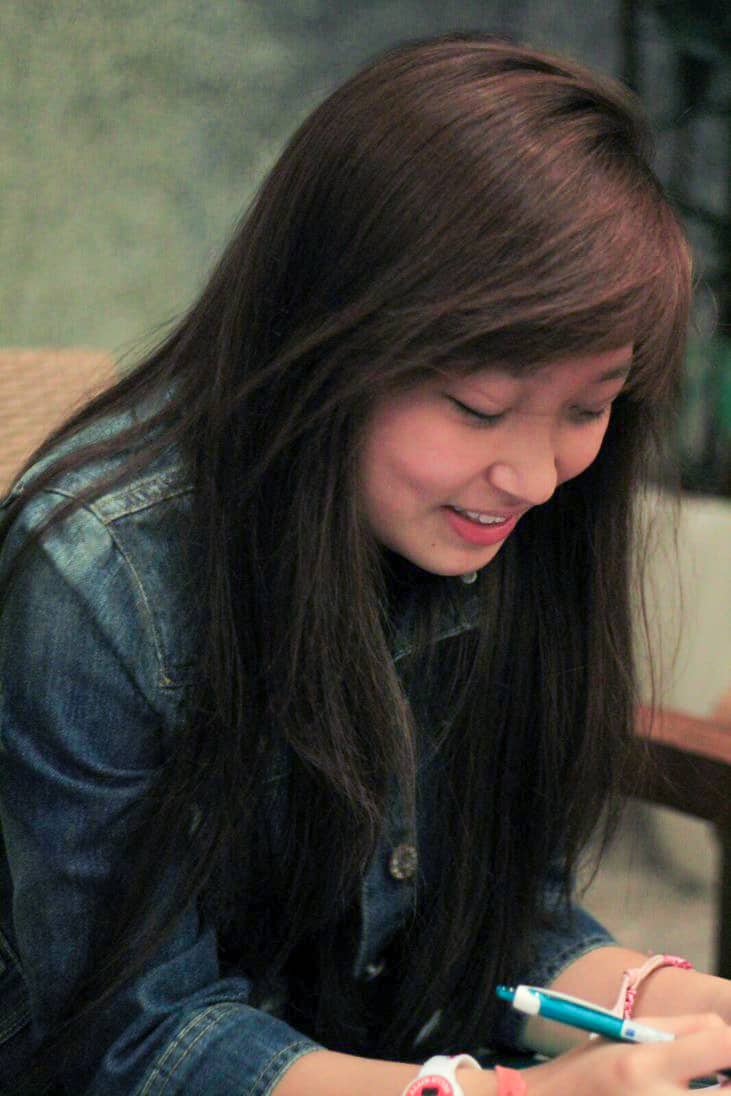Table of Contents
What does being “different” mean to you?
We are all bound to many standards–be it those set by our parents, teachers, friends, society, or even those we set for ourselves–they all play a significant part in the way we choose to act and behave.
Today, we share the story of one of our dear members, Denise Thong from Lithops Counselling on her experience being “different” and her unique path to becoming a therapist.
The beginning of a journey
For Denise, her journey to mental health and well-being first began when she received some pro-bono counselling at her church which she found extremely valuable.
“In a way, my loved ones coped with my autistic traits by ignoring them. It worked for them, but in doing so, a big part of me was invalidated. For the longest time, I felt invisible and alone.
It was great to finally feel seen, heard and understood. I had never felt this way before. It was very healing for me.
I wanted to step into the shoes of my hero and become a counsellor too.”
What many may not know is that Denise has autistic traits, which played a significant role in her childhood.
Growing up with autistic traits often left her ostracised by her peers. She also had her fair share of bullying in school.
As a young adult, she experienced difficulty navigating social situations at work.
“I overcame them mostly with sheer perseverance and my faith in God. I trusted that God had a plan for me and that all this suffering would come to fruition one day.”
Thankfully, the Denise as many know her today has emerged stronger, wiser and filled with light. She is currently helping many others who are going through the similar situations, others who may also be considered “different”.
Destigmatising individuals on the spectrum
There’s still plenty of stigma revolving around those on the autism spectrum.
Autism Spectrum Disorder (ASD) is a complex neurobiological disorder and a broad term used to describe a group of neurodevelopmental conditions.
It is mainly characterised by two key traits: (i) difficulty in communicating verbally and relating socially to others, and (ii) a need to engage in repetitive behaviours or interests.
What many people fail to realise is that the community is very diverse in itself, and no two persons diagnosed are the same.
“Some have fixated attention, some have problems paying attention, some can only eat very specific foods, some can eat anything. Some are very good at masking, some find it hard to mask.”
For Denise, her autistic traits simply mean being more sensitive to loud sounds and being very introverted; however, she still can function when special provisions are made (eg. finding a workplace that gives her the space and privacy she needs in-between sessions to decompress).
“It is important to keep an open mind as every single person with autism is different from the other. So even though I am on the spectrum, I do not project my own experience on my clients. Every single client (on the spectrum) is a teacher to me.”
Finding her inner strength
Denise shared that having autistic traits has helped her in her counselling practice. She has heightened empathy for those who face social isolation.
Skill wise, she has a good memory that has helped her recall information from clients many sessions ago. This has helped her to draw out patterns which has been very illuminating for her clients.
Her tendency to “talk without a filter” can be very unsettling in regular social settings but turned out to be a strength in the counselling work where brutal honesty (i.e. intimacy) is actually welcomed.
“While there are many misconceptions of those on the autism spectrum as a diagnosis, there isn’t any category or box that can fit any one autistic person into, which is why they are in the category in the first place.”
To add, she also has fixated attention, which means that she can pay close attention to her clients and track their verbal and non-verbal cues closely for hours. Her clients have feedbacked that that can be very comforting and reassuring. It has the effect of helping them feel seen.
A common misconception is that people on the autistic spectrum are all disabled. On the contrary, Denise explains that while it may be true for some, it may not true for many autistic individuals.
Another misconception is that autistic people lack empathy. This is not true for her, and for many of her autistic friends and clients.
“Though we may lack the in-build understanding of social cues, once we are told EXPLICITLY what is expected of us, we tend to be very conscientious and keep ourselves aligned with rules and social expectations. Of course, that requires recalibration from time to time.”
In particular, for Denise, though she struggles mirroring the emotions (i.e. deadpan, unfazed face) of others, she is able to convey empathy and genuineness through her words and gestures.
“Broken people helping other broken people.”
There are many individuals with autistic traits that are fearful of sharing their diagnosis for fear of being stereotyped or being restricted from opportunities.
“Stop trying to pretend to be someone you are not. Just be yourself and you will attract those who genuinely like you.”
The truth is, you can’t tell a person is on the spectrum simply by just looking at them. When I first discovered Denise had autistic traits, I was initially taken aback as there was no way I could tell–having spoken to her on a couple of occasions, all I knew was that she was a genuine person with whom I was able to easily connect and relate to (and that’s all I really needed to know.)
And it’s inspiring to learn that she is willing to be so open about herself; knowing how difficult it can be to choose to be vulnerable.
“I am non-judgmental and I welcome all categories of people into my practice – sometimes those who are naturally shunned by others.”
Many individuals with autistic traits turn out to be highly successful people who are able to hold fulfilling and satisfying relationships and deep, meaningful lives. For me, Denise is such an example.
The road ahead for Denise is to kickstart an experiential group therapy program incorporating psycho-drama in the next 5 years as part of her practice (and add it as part of her offerings at A Space Between!)
In the end, the world is chaotic enough as it is, and we all need to support each other in finding order, meaning and purpose amidst the chaos. Whatever makes us “different”, still makes us human.
If you are currently struggling with your mental health, feeling trapped in a toxic workplace, or simply need a listening ear–we want to be there for you. Begin your journey by visiting our Therapist Directory and fill out a form to let us know your preferred therapist or any preferences and requirements.
As Denise says:
“Be patient with yourself and your therapist. Sometimes it takes many sessions to establish a good rapport and even after that, it takes effort to keep the relationship going. But do not give up, it is painful but worth the trouble.”
About Denise
Denise holds a Masters in Counselling (Professional) from Swinburne University and a Masters in Science (Human Nutrition) from Deakin University. She is a certified Transactional Analysis practitioner by USATAA. She has experience dealing with a range of conditions and mental health issues including anxiety, depression, OCD and psychosis. Her main approach when working with clients is Choice Theory Reality Therapy, Experiential therapy and Cognitive Behavioural Therapy.

A dreamer whose go-to motto is “Follow Your Heart”, Charmaine is currently embarking on obtaining her Masters’ of Counselling, hoping to eventually make a full-time career in supporting others in their mental health journey. She has always been awed by the beauty of the human psyche and writing remains to be her favourite form of expression. She enjoys reading and writing about trauma, and would like to encapsulate the silver linings of what it means to be an imperfectly perfect human being in all her pieces.



